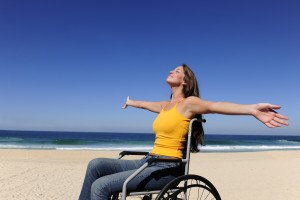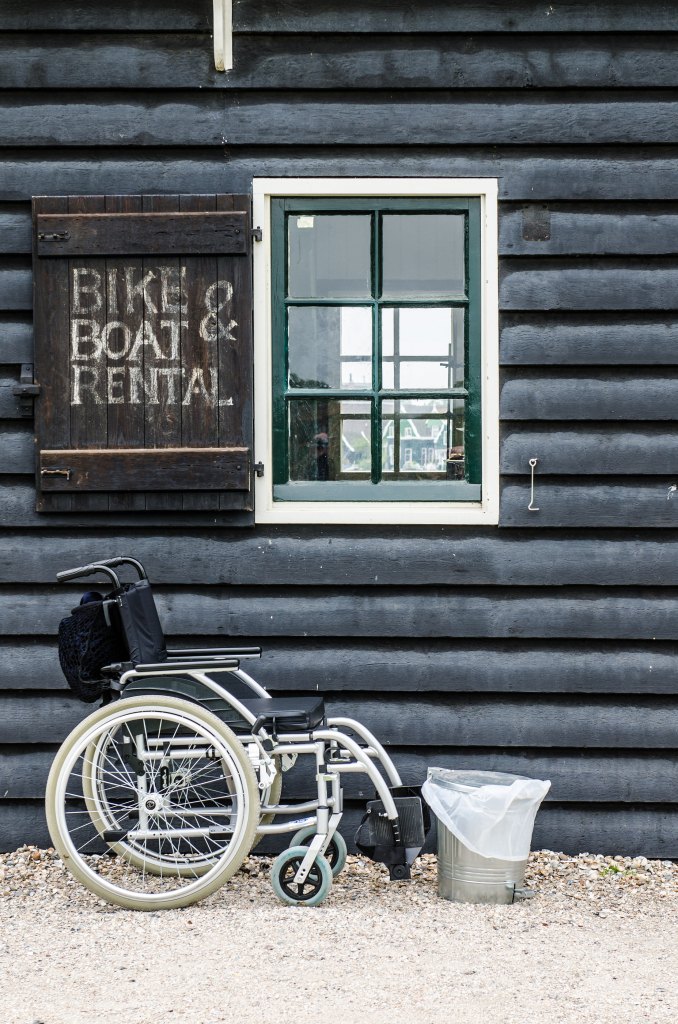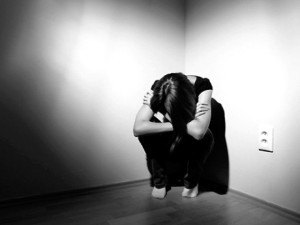When you live in pain you already have to deal with so much disappointment and heartache, doing what you love should become priority. Yet so frequently, and often understandably, those with chronic pain and illness let go of the very pleasures they once adored, whether through necessity — physical and otherwise — or drifting away from everything in life before illness and pain.
Perhaps not initially, especially if resistant to even the acceptance of illness — no matter how fervently your symptoms screamed otherwise — but soon the struggle gives way to letting go of activities that now need both additional preparation and painful recovery too. Add depression to this already complicated combination and even the desire to act itself can become its own additional challenge.
If your life in pain has become the dullest routine of simply trying to make it through the day, with very little for you, supporting you, nurturing and nourishing you, that’s certainly not good for the soul, nor your ability to live and live well with pain. Even if you are entirely debilitated, this post focuses on why and how you can bring a little joy and pleasure back into your life, if necessary, in even the most passive of ways.
Never Feeling Good
When we always feel awful and ever-thwarted by our chronic pain and other symptoms, we are less likely to do even the things we love the most. Because every activity is painful, it’s little wonder that so many in pain have stopped doing many or even all of the activities they once enjoyed but a lack of stimulation and doing things you love can lead to an even deeper depression and further isolation.
Additionally, it’s easy to fall into the less than nourishing trap of comparison, wherein you are forever thinking of the you before illness and pain, who once accomplished so much in a day, or was proud of your achievements and traits – traits that you are perhaps now unable to express because of the seemingly endless limitations so harshly placed upon your life because of pain and illness.
It may be natural in many ways, after all chronic pain and illness is a full-time job, only one without so much as coffee break, much less a day or evening off. It can be hard enough just making it through the day and the most necessary of tasks, let alone additional activities done purely for the joy of them.
'#ChronicPain and illness is a full-time job, only one without so much as coffee break, much less a day or evening off.'Click To TweetShift Your Focus
Do not focus on what you cannot do now, instead create a distance between you and those thoughts, you and those memories. Cognitive Behavioural Therapy (CBT) has helped so many in pain because it allows us to look at our thoughts and the things we tell ourselves and analyse them for truths. Then in turn replace any less-than-helpful thoughts with more nourishing ones.
Read this post on how to use these techniques to help you cope and be kinder to yourself. It’s a sad fact but a true one that we are so often our own worst enemies, sometimes even blaming ourselves for what is so out of our control or becoming angry at our inability to do what we once did with ease.
ACT (Acceptance and Commitment Therapy) is a more recent development of CBT and also can give you tools to cope with the endless thoughts that come with pain and illness. Look on your memories with love, not heartache and heaviness. No matter how many times you think of before you were ill and in pain, the past never changes by looking at it. Instead think about what you used to enjoy, the things you did for pleasure, and see if they are connected in some way and can in turn be modified or something related can be enjoyed.
Rethinking Activities
Perhaps you used to love to make music but now don’t even listen to it let alone are able to make it but in rekindling that — passive — activity of listening to music again, you can return your love of music to your life. I played trumpet for years in a jazz band but now cannot so much as hold it much less play it but in creating a few playlists of the music I loved to play, instead of feeling sad, it makes me smile, and joy — aside from being an effective pain-reducer — can help you cope with your chronic illness and pain.
Life is in itself a process of letting go and those of us with chronic pain and illness know this lesson far more directly than most but not everything needs to be relinquished nor mourned. Obviously it is not the same, not quite as wonderful but the point is to adapt and find new or modified pleasures that do bring you happiness.

Maybe you loved long walks in the countryside or hiking in the hills and now find crossing a room impossibly painful. Of course hiking is a heavenly pursuit but making yourself sad and upset by focusing on never being able to experience that pleasure again helps no one, least of all you. Perhaps you can still be taken out into nature by car and enjoy a fine view on a day out.
A study published in the International Journal of Environmental Research and Public Health showed that simply being around nature can lower stress levels and boost your mental health too. If you cannot get outside, you can still benefit from simply looking at images of natural scenes. A study by Berto (2005) found that just viewing pictures of natural scenes had a restorative effect on cognitive function and stress-relief too. People were restored by picture of trees, fields and hills, but not by streets, industrial units or even complex geometric patterns. When unable to leave your home, a documentary on nature or travel could lift your spirits.
It’s obviously not as lovely as being out and walking through nature but simply being in nature, as well as looking at images of nature, have both been scientifically proven to help reduce stress and induce calm. Both of which become all the more vital when in pain. Often there are alternatives or means to doing similar activities that can be modified in some way but never focus on what is lost.
Even in such crazy conditions as this, there is still much to live for. In fact, with a little imagination and support, you can enjoy albeit modified versions of that which you loved, which is vital. A life with nothing to look forward to or enjoy can become an even harder place to be.
'Our lives are small enough with such severe pain conditions.' #chronicpainClick To TweetConnecting With Loved-Ones
Spending time with loved-ones when you are in so much pain is exhausting yet no human connection can be far more damaging, isolating and of course depressing too. Set a time limit and speak one-one on to a visitor who you care for. Prepare first, recover after but take joy in that connection.
Skype and FaceTime are both amazing ways to connect with your loved-ones from anywhere on this planet. They need not be in the same town, in fact, some of my deepest connections are flung far and wide and Skype has become a healing medium to keep in touch with these beautiful souls.
Connecting with those you love, having a giggle, or even rant and moan should you want that, is healing. Humans aren’t meant to be so isolated but that’s far more tricky when so debilitated with pain and illness. Reach out, online, on the phone if you are able to use it without flaring your symptoms and connect.
Why Activity and Experiences Help Reduce Pain and Retrain the Brain
New experiences, novel activities and even relatively passive tasks that keep your brain fit actually strengthen neural networks, which becomes all the more vital when you have chronic pain. Neuroplasticity is the ability of the brain’s neurones to grow, reorganise their networks, make new connections and functions that result from your thoughts, environment, the emotions you feel, and the things you do.
Brain cells, or neurons, may shrink as we age but neurones don’t just die off by their thousands as scientists once believed. It’s now known that the brain exhibits plasticity, that is, allowing neural connections to be forged even late in life. In the last ten years our understanding of the brain has – pardon the pun – been turned on its head.
In chronic pain maladaptive neuroplasticity causes the brain to transmit unwarranted pain signals, keeping the pain gates forever open and you in a vicious cycle of pain. The constant pain signals become stuck on a loop and it is this which has led to remarkably successful brain training therapies such as Graded Motor Imagery and Mirror Box Therapy, which are already having results for many chronic pain patients.
New experiences can counteract the maladaptive neuroplasticity that comes with chronic pain and by engaging in activities you enjoy though they do not need to only be active activities. A study published in 2002 in the Journal of the American Medical Association found that people who regularly read, solve crossword puzzles, play cards or checkers, or visit museums are less likely to experience mental decline than those who do not. Even a practice as passive as meditation has been shown to cause positive neuroplastic changes in the brain.
Why it is So Vital to Do What You Love [When Living in Pain]
Aside from the aforementioned brain benefits, when you are engaged in something you love and your focus on that, the pain, though clearly still very much present, is easier to cope with. Every kindness you can do for yourself can help you cope with chronic illness and pain. Working with, not against, your illness and pain can lead to your life being far happier and a happier life is a more resilient one no matter the depth of the challenges you face
Depression and pain are so frequently connected and yet each makes it harder to heal and cope with the other. However, even the humblest of daily actions that you do for you, a gift to yourself, by doing more of what you love — even passive activities, like listening to music, having a candlelit epsom salt soak, watching good films or reading poems or short stories, when pain is too high for anything else — is nourishing no matter the cause of your pain.
Factoring play into your life also gives your brain opportunities to produce serotonin and dopamine, both of these neurotransmitters play a huge part in your mood. Relaxing and enjoyable activities also can help to quieten an overactive nervous system, in turn lessening your pain levels albeit just a little, reducing stress-related neurotransmitters (brain chemicals), and increasing nourishing neurotransmitters.
Our lives are small enough with such severe pain conditions. Additionally, the maladaptive neuroplasticity that chronic pain causes is worsened when every day stays the same. There is no new stimulus, only pain and quite naturally, it’s easy for us to focus on that pain instead of perhaps something that we can look forward to.
That may not be easy, in fact far from it, it’s natural to focus on what hurts, especially when it’s severe pain but in choosing and participating in activities that make you feel good reinforces the neuronal pathways in your brain. Novelty and focus also play a massive part in creating neural pathways.
'Even in such conditions as this, there is still much to live for.'Click To TweetReturning to What You Love
If you are able to modify the activities and things you love a little to accommodate your ability to engage in these pastimes again or find new passions, it brings a new joy to your life.
- Perhaps you used to love to make delicious meals for your friends but now the pain and other symptoms has made that impossible. So now you miss being creative in the kitchen and the social side too. Think of ways to rekindle that passion and joy. Your friends could visit with a pot each. Or perhaps come to help you cook first or bring a take-away over. If you are able to stick within your energy envelope and pacing limitations to avoid flaring-up, you may find that much loved lost pleasures can be returned to you, albeit modified a little.
- You may have loved to mess around with paints or create watercolours but now the pain and consequences of doing so is far too severe, leaving you sad and not painting. Instead use pacing to return to the canvas. Oil painting is one medium that allows you to stop and return to it over a whole month before it dries, which is ideal for those of us who don’t have the strength or luxury to paint in long sessions.
- If writing is a deep love but using a pen too painful, you might like to try dictation software or simply break up your writing into timed sessions, much like when you use pacing for any other activity.
- Alternatively take up a physically less physically demanding but equally creative pursuit and write short poetry or haiku though it need not be a creative pastime but anything you love.
- Spending time with animals is especially stress-relieving but pets are not always an option when chronic illness and pain is so limiting and debilitating. If your friends and family can visit with their pets, that too could be a lovely way to put a little sunshine into your days.
- Listen to music, sing in the shower or bath, even humming has been shown to lessen stress levels and music itself help reduce pain.
- Spending time with loved-ones when you are in so much pain is exhausting yet no human connection is actually far more damaging on so many levels. Set a time limit and speak one-one on to a visitor who you care for. Prepare first, recover after but take joy in that connection.
- Skype too is an amazing way to connect with your loved-ones. They need not be in the same town, in fact, some of my deepest connections are flung far and wide and Skype has become a healing medium to keep in touch with these beautiful souls.
- Nature is healing on every level. Perhaps you loved to visit the shore on a windy day or float or even sail in a dingy on a sunny one. These things may be far more difficult but they should never be banished from your life. Sometimes we know what we have planned will lead to a painful flare-up but the pleasure we derive from doing so makes it all worthwhile, comparatively anyway.
What about you? How have you modified your hobbies, pastimes, and the things you love? Do you have ideas to share that may help others in pain? Add your comments below, it’s always a treat to read them. ♥
[avatar user=”jomalby” size=”thumbnail”]Gentle hugs x[/avatar]









I guess I’ve read 4 or more posts….this was the first one I read & it hit way too close to home…I’ve been questioning myself, what I’m feeling, what I’ve had to do & so much more. Reading this helped my heart & mind….I’m NOT crazy, I’m NOT just being a big baby, I’m NOT exaggerating what my heart & body are feeling, those who are fighting me/not believing me truly are just that insensitive & unless it happens to them or someone they care for more than they care for me(which includes my own father who is going through his 5th fight with cancer along with severe knee/hip/back pain…he thinks–along with his wife & her daughter that because he has cancer my fight with CRPS is nothing & I should be there for him…he lives 30minutes away—my limit starts at an hour–could be 2 therefore I can’t drive to him…so they literally expect my mother, grandmother or whoever should drive 30minutes to me, take me to his house & then one of them will drive me home…yet he makes no effort to come see me although I’ve asked so many times being told in one breath he doesn’t go anywhere & in the next being told they go out to eat sometimes several time a day, drive 2 hours to the casino & the last time I asked–the week before he started last chemo treatment–he said only if he can find pain pills yet my mom seen him walking around a big store just fine…so I’ve stopped asking because I can’t be hurt by him anymore).
Sorry for the long rant….but having the validation I’m not being selfish taking care of myself as #1…I can’t say thank u enough.
Gentle hugs!!
Sammie, it’s the hardest thing in the world when our own families not only refuse to understand but be hurtful in that understanding of our pain and illness. I, as I am sure you too are sorry that your father is going through that but comparison in illness is never a good thing for anyone involved. I think it can be a difficult but sometimes necessary thing to accept that although support would be a fine thing, we have to reach into the very depths of our own strength and resilience that we never knew we had to keep going with the monster that is CRPS. We do though, and we find strength in others we meet with pain, whether fellow CRPS warriors or in pain support groups, social media etc. Of course CRPS is far more than pain and the challenges we face do unite us. People can only imagine pain to the level they experienced, that too was often brief not constant. CRPS sits at the very pinnacle of pain and even the world’s strongest opiods do not take that pain away. If you can See the CRPS page and the pain management page for the McGill Pain Index which may help if they read it but do not be disheartened if they do not. A huge but vital step would be to distance yourself and allow yourself a little healing from this and I hope ranting releases your anger and hurt a little. CRPS is so hard, hard enough without adding that hurt and stress to your body. Connect with others who do understand. So pleased you enjoyed the post and gentle hugs to you too. ♥ x
wow this article was just what I needed to hear. I have followed you a lot on Facebook and always enjoy your perspective to chronic pain and how we deal with it. You positivity is amazing. I can agree to all of the facts on ” it you stay in the same moment day after day ” your brain has nothing to feed off of.. so many times my husband asks me to go somewhere or do something and I really don’t feel like it. I am either depressed about my situation or in killer pain, but most of the time when I do make myself go I do feel better. it is the stimulation we all crave. Thank you for sharing your thoughts and giving us all something to grasp on too.. Julie
You are so welcome Julie, it’s my pleasure. Delighted you enjoyed this. It can be the hardest thing to move at all when everything is so painful but totally agree in that if we are able to, hard though it is, we are then rewarded by that stimulation we are so usually isolated from. Wishing you better days and continued courage Julie. Thank you for your lovely comment and gentle hugs too. ♥ x
H there, I enjoyed reading your article, I am an artist and developed fibro after a stressful year preparing for an exhibition. I couldn’t draw or paint for about 18months after I had fibro, but with each day that passed I was more and more unhappy at not being creative. I tried sewing and knitting, but they didn’t really fulfil me. Then, one glorious day I felt able to start again. I have had to modify how and when I work, and change my style, but, strangely I have more confidence. This is partly due to deciding to go back to the beginning again and, of necessity, go slowly. I strongly feel that if you are creative in any way, not doing that is so very harmful to mind and body. So, you are right, it is vital, and, with adaptation, it is possible to express yourself. As you say, with chronic illness there is so much disappointment and loss of confidence, self expression may be a great healer and comfort.
I loved reading your comment, Sally. Not only for the fact that you are again making art, which is so wonderful, but for the creative liberty that you have found. I agree that if we are not expressing ourselves creatively it can be so affecting, and on so many levels. I love that in adapting how we create can be a path to new inspirations, and of course as you say, great comfort and healing. Gentlest hug and keep making art! ♥ x
Chronic pain can make intimacy a challenge. But it can also be one of the things we can do that releases all of those good happy cells. Whether we are alone or with a partner. I’ve spoken with many women about how we adapt our love making to meet our needs. While a quickie standing up in the shower may have worked in our younger daze … we probably need to take things much slower now. Talking with our partner about how we are feeling is key, and since our pain and energy levels vary, we need to keep the line of communication open and fluid. As with every other adaptaphone we have found to help us adjust to our changing circumstances, creativity and humor go a long way to discovering the endless possibilities in our love life and in loving life.
Thank you for a fabulous piece that is just so true for us with chronic pain conditions, I will be showing my family and friends this to help them understand another part of it
Sammy I also suffer from CRPS which is so so hard on us without the added stress of some people around us. I hope you have someone there for you as that will help loads. Sending hugs x
Thank you once again for an amazing piece of writing
You are so welcome Dawn and thank you for your lovely comment. CRPS is such a monster, wishing you courage, strength and better days too. So happy you enjoyed this post. Sending gentle hugs x
Don’t forget the guilt that comes with doing something we enjoy as opposed to what we “should” be doing, because there’s just not the energy to do both.
I’ve had cfs since I was 16 (42 now) and that’s always been a *huge* stumbling block for me.
Thank you for your comment Jane. I know that one well but do think there’s so much value in being kind to yourself too, more so with chronic illness and such difficult limitations. I have also felt that guilt, we are so often hardest on ourselves but with 26 years of illness behind you, think you should be the last to feel guilty for doing something you love. Especially because of the rarity of that event. Also it’s vital to live inside that [albeit tiny] energy envelope so if you are too exhausted to do anything other than rest, then rest and don’t feel guilty for it or be hard on yourself. We can only play the cards we are dealt and work with what we have, even if that’s of little comfort, do wish you far better days. ♥ x
I could not love this article anymore! I was pondering exactly this last night! Ever since I stopped working I’ve become isolated and depressed. I need to find something that I enjoy. An activity that will bring me joy. I need to take stock of what I can do and what I used to do and see if I can modify it some how. I seemed to have given up everything and started to just focus on the pain and surviving instead of living. Thank you so much for this well written article. *Hugs* to you! 🙂
You’re welcome, thank you for you’re lovely comment, Elizabeth. 🙂 So happy it resonated with you, and love your attitude too. It’s so important, especially when dealing with so much. Keep me posted! *Hugs* to you too. ♥ x
This is so very good! I have struggled with chronic pain now for 15 and a half years, had 22 neurological surgeries and procedures, and am literally exhausted. I have lost so very much and it is just tough to go on. Your ideas of looking closely at what we can do rather than what we can’t is a great point. I am going to share this with others. Thank you!!!
You’re so welcome, Kerry. Your enthusiasm makes me so happy! It’s my pleasure, delighted it resonated and inspired, and thank you for sharing the love too! Gentle hugs ❤️
Totally love this post! It resonates so much with what has happened in my life. Luckily I found the power of creativity and being involved with a community. Unfortunately some people don’t find the things they love. So this blog will definitely raise awareness and hopefully inspire people to try new things to discover the things they love once again. Hope you don’t mind me sharing on my FB page?
Wow – I am totally wiped out but elated. Focusing on just everything to get through a day has overwhelmed me, I’m 74 – CRPS for 12 years. I read this article mainly because of my husbands searching for me. It is so validating & painful at the same time. Neither of us even recall wearher we gave these to our adult children. My husband just sent them copies & I posted on the Complex Regional Pain site. I decided to finally open up some ..,, actually, due to the nature of husband’s line of work- I have had to be under the radar a bit. That also go gave me an excuse to hold people at a distance, I had friends from young life so many I still dearly love & have been most receptive to what I called ‘my coming out- putting I a picture of me & one of husband & me! A huge endeavor for my extreme lack of skills in the tech world. My right shoulder is one area that has suffered. It now looks quite emaciated next to my left shoulder which I think is very beautiful & actually get comments that the muscle in bicep amazing. At this point I treasure any thing positive said about me. My daughter got
me started & I am fumbling through- connecting with old friends & now the Complex Regional Pain site- that has all been a huge blessing, but again I am limited in what I say publicly as one of my kids also found I need to be very sensitive to also the nature of that one’s job. I was so excited to tell about his successes when that joy came to a screeching halt! That one was most gracious in explaining why the comment had to be deleted & I totally understand! In fact, I quickly learned I had to be wary anyplace on Facebook from scammers & spammers. I immediately shared The Princess in the Tower. which last I looked was at 73 shares.!
The true CRPS people loved it & especially the validation of the McGill Pain Index! It’s all new territory for me, starting at this age. I don’t even know the lingo like a Post as opposed to a comment.
I have said all this & hoping it gets to someone. I realize it’s gotten quite lengthy. In fact maybe I should should break it up in hopes it won’t be n removed putting my heart into sharing something is tugging at me greatly.
So will send this & start Part Two to what has totally grabbed me! Bonnie Coulter
I have done this & pray this long comment goes through. Not done – to be continued!